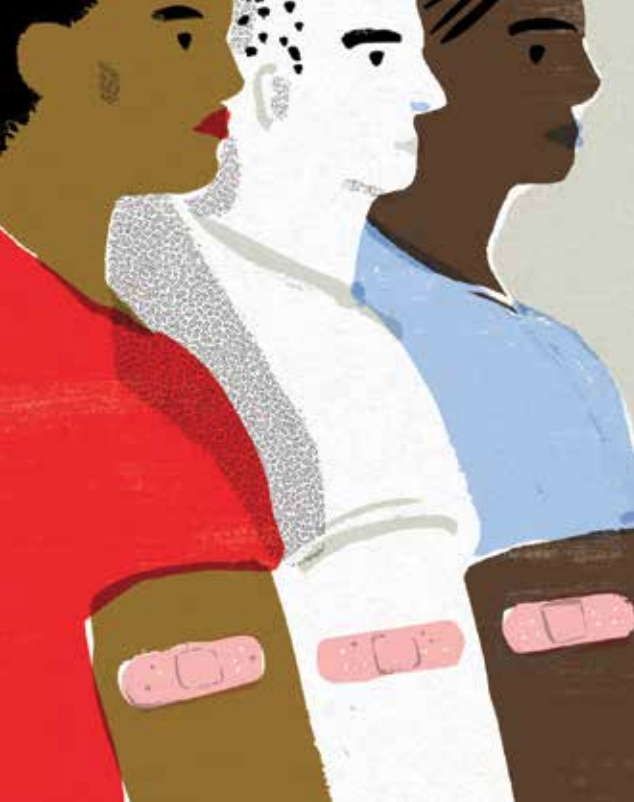Editorial: Black History is American History
February 18, 2021
COVID-19’s sacrifices remind us of depth and texture of our shared history.

Not so inside 1199. Since the Union’s founding, 1199ers of all races, creeds, and colors have played significant roles in the vanguard of Black history and the struggle for Black freedom and equality. 1199ers have long spearheaded efforts to educate the broader public in the fight for racial justice and the need to eliminate white supremacy. 1199’s early leaders and activists were very clear about the relationship between race, class and economic divisions. Underpinning all of 1199’s work since 1932 is the understanding that none of us can be truly free until we are all truly free.
1199ers know that Black history—like working class history—is no footnote to U.S. history. It is not to be confined to the margins and only occasionally trotted out as a balm for the national guilty conscience. And what could demonstrate this more profoundly than the current moment? So many of the faces of our celebrated ‘healthcare heroes’ who work daily to rescue our country from the ravages of the coronavirus and, often giving their own lives to save others, are darker than before. It is often darker-hued hands that tend the desperately ill, comfort the isolated, and too often, close the zipper on the bags of those who do not survive COVID illness. Once again, Black and Brown people are being asked to care for others, putting aside their own physical, emotional, and economic traumas built up over four centuries of malevolence and neglect.
The truth is, Black history is part of the gorgeous mosaic that is American history. Black culture extends throughout America’s civilization, culture, and song. No story of America can be complete without the full inclusion of the Black experience. No progress can be made without rainbow solidarity and an understanding how all our fates are inextricably linked, whether that is at the negotiating table, side by-side in the workplace, demonstrating in the street, or in line for a COVID-19 vaccination.
As we mark Black History Month in 2021, we look ahead to a world changed by this pandemic and the reality of our very fragile democracy. The COVID-19 vaccines give us a way forward. The path ahead is surely no less rocky and challenging, but we move forward, nonetheless. In honor of Black history—an integral part of America’s gorgeous, multicultural social fabric —and all those who came before us, and including so many lost, we must all step firmly on this road and be prepared to work together in the struggles that still lie ahead.
- 1199 Magazine | January / February 2021

